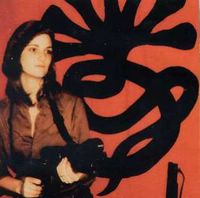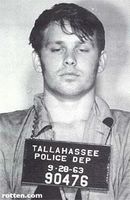"Munich" and the Sin of Ambivalence
Evidently, some with a stake in the so-called culture wars aren't satisfied to keep the weaponry relegated to gay marriage, intelligent design and the insidiousness of non-exclusionary seasonal greetings. In recent weeks the long knives have come out over a movie, and one not even directed by Mel Gibson.
Despite being a helluva film, Steven Spielberg's Munich has ticked off a bunch of folks, most of whom subscribe to the notion that supporting Israel/opposing terrorism means rejecting all suggestions of ambivalence and complexity in the big ol' universe.
Based on the controversial book Vengeance by Canadian journalist George Jonas, the film stars Eric Bana as Avner, a quiet and contemplative Mossad agent. After Palestinian terrorists kidnapped and murdered 11 Israeli athletes at the 1972 Munich Olympics, Avner is directed by then-Israel Prime Minister Golda Meir to track down and assassinate a number of Palestinians who helped mastermind the slayings.
Spielberg's other flick of 2005, War of the Worlds, was a slick summer thrill ride, but its mosaic of U.S. cities under attack adroitly mined America's post-9/11 fears. Munich, an obviously more solemn picture, is the logical bookend to that earlier work.
While Munich's most direct subject matter is the aftermath of the Olympics tragedy, there's no denying that its depiction of vengeance, responding swiftly and decisively in the face of barbarism, is particularly apt in today's global environment. Spielberg underscores that fact with a scene toward the film's end, in which two characters are talking in Brooklyn, circa 1973. Behind them is Manhattan, and it is impossible to miss the Twin Towers looming like ghosts over the famed skyline.
Clearly, the filmmakers find legitimate linkages between Israel's response to terrorism in 1972 and the U.S. reaction to the attacks of Sept. 11, 2001. Less certain, however, is whether Spielberg and company are judging the latter response, or simply pointing out the moral quagmire that results from an eye for an eye. The movie explores shadings of morality; it does not instruct.
But lack of certainty hasn't prevented some critics from lashing out at Munich.
In The New York Times, for instance, Edward Rothstein displayed the nearly supernatural ability to place himself inside the heads of the moviemakers:
"The warning and image [of the World Trade Center in the movie] are meant to suggest that militant attempts to destroy terrorism lead not to peace but to cycles of violence, and that the 9/11 attacks may even be consequences of Israel's response to the Munich massacre. A war on terror amplifies terror. Moreover, the movie teaches, opposing sides begin to resemble each other. Moral credibility is destroyed along with hope."
The New Republic's Leon Wieseltier was so venomous in his shredding of Munich, you'd have thought that Steven Spielberg himself had taken a dump on the guy's lawn:
"The real surprise of Munich is how tedious it is. For long stretches it feels like The Untouchables with eleven Capones. But its tedium is finally owed to the fact that, for all its vanity about its own courage, the film is afraid of itself. It is soaked in the sweat of its idea of evenhandedness. Palestinians murder, Israelis murder. Palestinians show evidence of a conscience, Israelis show evidence of a conscience. Palestinians suppress their scruples, Israelis suppress their scruples. Palestinians make little speeches about home and blood and soil, Israelis make little speeches about home and blood and soil. Palestinians kill innocents, Israelis kill innocents. All these analogies begin to look ominously like the sin of equivalence, and so it is worth pointing out that the death of innocents was an Israeli mistake but a Palestinian objective."
Wieseltier must've seen a different Munich than what I saw. Spielberg's film is not Oliver Stone sanctioning far-flung conspiracy theories, nor is it Mel Gibson fanning anti-Semitism. Instead, Munich makes the evidently serious transgression of humanizing its antagonists. It presents Palestinian terrorists as ... people.
Not particularly good people, mind you, but people, nonetheless. Munich hardly sympathizes with the Palestinian terrorists who committed murder. In fact, Mohammed Daoud, who planned the '72 kidnappings and murders, has accused Spielberg of "serving the Zionist side alone." The director makes no bones about his condemnation of terrorism. The audience has a rooting interest in seeing Avner and his cohorts assassinate the masterminds behind Black September. Nevertheless, the film makes the very point that violence, no matter how righteous, comes with consequences. Whether it is a soul in turmoil or the dangers of becoming one's enemy, there are ramifications.
One suspects that some of the savaging of Munich was inevitable because Spielberg had tapped Pulitzer Prize-winning playwright Tony Kushner to write the screenplay. Kushner, the author of the celebrated Angels in America, is well-known for his leftist politics and harsh criticism of Israel's occupation of the West Bank and Gaza Strip (Kushner, incidentally, is Jewish).
But Munich does not purport to be -- and should not be confused with -- a deep political treatise. It is too engrossing as a thriller to hold such lofty aspirations. Spielberg's take on the story is simple, but unequivocal. As he told The Los Angeles Times, "Sometimes we have to choose from bad options. And sometimes there are unintended results." How can you argue with that?
Ultimately, the LA Times' Rachel Abramowitz hits it in her assessment of Munich:
"Politically, the film is a Rorschach test -- almost impossible to view except through the lens each individual audience member brings to the theater. There are those who will see a glamorized Israeli Mossad squad, dispatching villains with ingenuity, fiercely committed to the perpetuation of the Jewish state, while others will be infuriated that any of the Israeli commandos express any qualms about their mission. Some will be troubled that the Palestinian terrorists have been humanized, and others will be sure that they haven't been humanized or validated enough.
"At the end, it's a visceral, emotional piece of work that doesn't offer any specific solutions — a fact that will anger a whole other set of viewers."























5 Comments:
I liked Munich quite a bit and agree it had more in common with, say, Ronin or The French Connection, than any heavy-handed political diatribe like Syriana.
It still wasn't the best thing I saw this weekend. No, that would be Wolf Creek. Equal parts Open Water, The Hills Have Eyes, and Mad Max, I have not been that scared in a movie since the Blair Witch Project.
Here's a semi-comical sidenote. My unabashedly liberal high school history teacher always liked to talk about the Mossad response to Munich as an example of how tough the Israelis were. He thought tracking down every last one of those terrorists was the right response. This being the mid-1980s, he also harped constantly on Reaganomics and the need for more detente with the then-Soviet Union, as well as spouting constant classroom paeans to the heroics of labor unions. His shrill rhetoric was among the first elements to push me toward conservativism. Go figure. How's that for ambivalence?
I think the reason that some people can't stand to see terrorists portrayed as human is because the viewer is human.
"How could someone do something so horrible. I would never do something like that."
I don't want to get into a big nature vs. nurture argument here, but I think the same person, were they born in the desert, or the Gaza Strip or fucking Detroit would probably be a different person.
We hate terrorists because of what they do and showing that they have qualms and questions, the same way we non-terrorists do, maybe hits too close to home for people who are too wrapped up in rhetoric to realize that there are real problems, real causes and real consequences behind the things that happen.
It doesn't make terrorism right, it just shows that the terrorists might not be the only ones at fault.
Commence the ripping me to shreds....NOW!
I would have to agree with Dr. Pants on one level, perhaps in a way he did not expect: Culture matters.
So, yes, the same individual born and raised in America would have a better chance of not turning into a terrorist, since one particular culture on our planet seems to foster more than its share of terrorists and another culture on our planet, the American culture, seems to foster more than its share of hardworking, creative middle class strivers.
On the other hand, American culture "nurtured" Timothy McVeigh -- a borderline sociopath who, according to his court psychiatrist, obsessed over the superhero comic books of his youth, never fully matured and saw himself as an avenging superhero when he carried out his truck bombing.
Still, we find one particular culture that has birthed a viral and quite deadly strain of terrorism that seeks to destroy simply for the sake of mayhem. Remember "we love death"?
I take them at their word, especially after watching the Twin Towers plunge through the Manhattan skyline.
And while any culture may produce individuals who pronounce similar oaths, not many have produced individuals capable of carrying the words into action in such a horrific and widescale way.
We remember such individuals in human history for their rarity (like Adolph Hitler) ... and for their manifest and immanent evil.
No ambivalence is required to arrive at such an understanding.
Boy, someone named "Steve" sure seems to like some obscure novel about a Korean chick's hot Mr. Goodbar-esque Odyssey. He's managed to weasel it into two 9/11 related posts on CTTC. Wonder if "Steve" is some marketing buzz-creator shill for the publisher or author? On the other hand, "Steve" could just be some guy who reads Penthouse Forum letters and also very much likes obscure novels about hot sexual discovery odysseys. Wagers from anyone as to which? "Steve," please share the scintillating prose with us from the scene with the naked crane dance thingy. I'm sure it's "hilarious".....
Post a Comment
<< Home